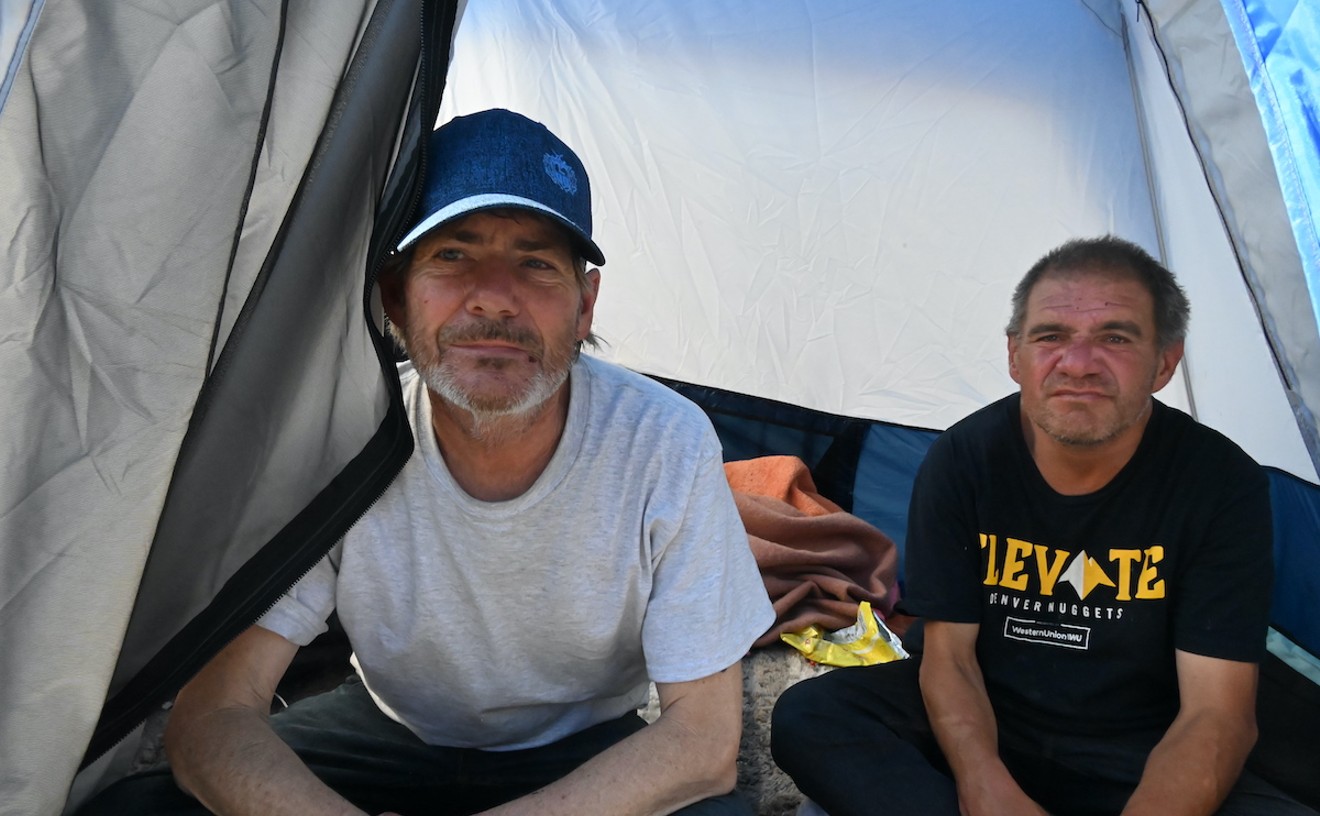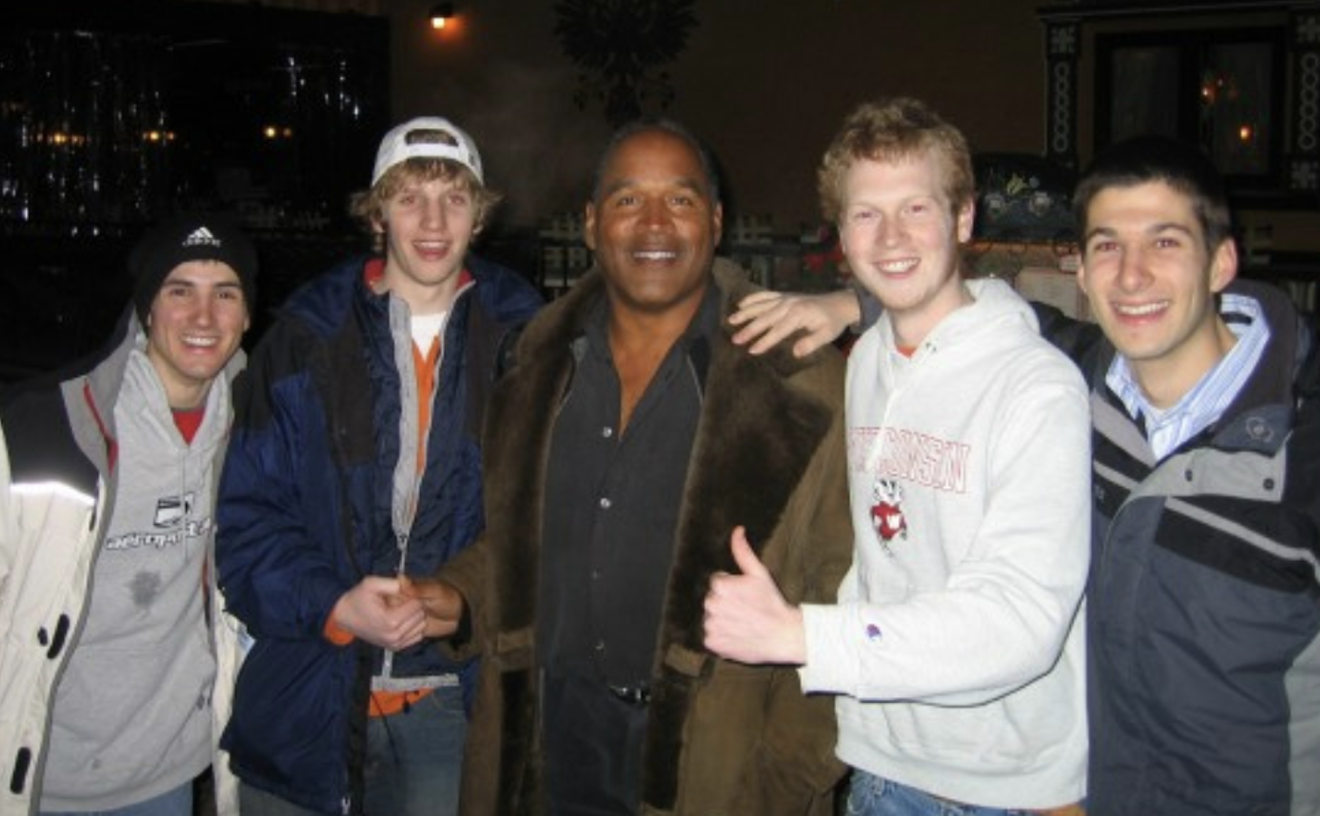"Most parents have a label for their child," he says. "They'll say, 'I love my child, but my child is the child from hell.' I hear that a lot -- 'the child from hell.'"
Aly is the sixth of nine kids. Her mother wasn't around much, so the older kids took charge. "They very seldom had anything to eat," says Aly's adoptive mother, Helen. (Both names have been changed.) "I know they scrounged in garbage cans. Sometimes they'd make macaroni and cheese with water because there wasn't any milk and butter. Sometimes they'd eat raw macaroni. But they loved each other and watched out for each other. In Aly's mind, her needs were being taken care of by her brothers and sisters. They were all fine in her eyes."
So it came as a horrible shock to four-year-old Aly when she and her siblings were taken away from their home by social services. Aly was separated from her brothers and sisters and spent the next four years in and out of foster homes in Pennsylvania.
Helen's sister served as a foster parent to one of Aly's oldest brothers. She was preparing to adopt the boy when, says Helen, "he fell apart, ran away, got arrested and went to jail."
So Helen knew something of what she was getting into when she and her husband decided to adopt Aly. Helen's family was to be Aly's fifth placement in four years. Helen was told that Aly had "attachment issues," but, she says, "like so many before us, we thought we could love it out of her. Nobody realized then what [the numerous placements] had done to this kid. She'd start to attach to these people and then she'd get dumped...Everybody let her down her whole life."
The first eighteen months or so that Aly was with Helen's family, which includes two other adopted children, were a "honeymoon," Helen says. And when the bad behavior started, it was subtle -- some passive-aggressive behavior, some defiance when her parents asked her to do something.
"It was not an issue at first," Helen says, "but then I could see that it was more of a power struggle than an independence thing. She was back-talking a lot. Behavior that's pretty typical for a child her age, but it was very much exaggerated, more intense. There was a viciousness behind a lot of the stuff she did."
Aly began pulling her siblings' hair or smacking them as she walked by. When they complained, she would deny misbehaving. Then she started making up nonsensical lies, things that couldn't possible be true.
One time Aly falsely accused a playground monitor of slapping her little sister. She continued to stick by her story even after her sister and the woman denied the event had occurred.
In June 1998, when Helen was recovering from surgery, her mother came to help out. Aly "had a hard time with that," Helen says. "It bothered her, and the only emotion she really knew was anger." Aly's reaction to the situation was to drive a wedge between Helen and her mother.
One of Aly's regular chores was sweeping the kitchen floor. "This one particular night," Helen remembers, "she did it as slowly as she could. Forty-five minutes after she started, she was still at it. My husband told her to pick up the pace. He reached over to take the broom away when Aly heard the bedroom door open. All of a sudden, she backed into a corner and put her hands over her face and started screaming, 'Don't hit me!'
"We walked toward Aly and told her everything was fine, but my mother, who was coming down the hall, assumed this child was about to be abused. I said, 'Mom, you have no idea what's going on.' And my mom said, 'I can't believe you're acting this way.'"
Helen's mother was so upset that she left.
After that, life with Aly "went way downhill," Helen says. They placed her in therapy -- again -- only this time with an attachment therapist. But the abuse of her siblings worsened, and severe temper tantrums became a daily occurrence. Aly was just eleven.
By now, Helen was seriously worried about the effect of Aly's behavior on the two youngest kids. Both had been abused as tots, and "this wasn't an environment I wanted them in," she says. "I felt she needed to be hospitalized. I called Crisis Intervention, and they advised us to call the police. They did a '302,' an involuntary commitment of a minor, and sent her to a psychiatric facility for a few days. She didn't want to come back with the family...I think she felt safer, more in control there. She has a real problem with intimacy. The hospital staff comes and goes; there's new people to con, to get sympathy from."
When it came time to leave, Aly had to be carried out to the family van. "I had to sit on this child and hold her in the seat from the hospital to home," Helen says. "The next day she was at it again. I took some clean clothes to her room and told her to put them away. She said she didn't want to. I said, 'Okay, you can put them away or leave them in the basket -- I don't care.' She had a rock she'd painted at Bible school. It said, 'God loves you.' She picked up that rock and threw it at me; it winged past my head. I had to grab her hand. She was going to scratch my eyes out."
That incident resulted in another call to the police, another hospitalization. Aly was gone for five days that time. But she was home just three days before Helen and her husband had her hospitalized again. During that third hospitalization, they decided Aly should go into a residential-care facility. They eventually found one for her on the other end of Pennsylvania, a five-hour drive from home. Aly has been there since October.
When Aly began refusing to cooperate in family therapy and then refused family visits altogether, her therapists decided that the best way to deal with her was to give her consequences for her behavior -- and they essentially removed her from the world. They sat her at a table and told her to stay there, that she wouldn't be allowed to participate in any recreational activities, only group therapy. To "earn her way back into the world," she'd have to participate in family therapy and make phone calls home. It was a tedious way to spend a day, let alone a week. Aly lasted six weeks at that table.
"This past weekend, she decided to rejoin the world," Helen said earlier this month. "She made her first phone call home. She wrote us a letter telling us her fears. She shared with us her thoughts about her adoption day. We'd had a big party. She said that we probably didn't notice, but that she'd sneaked off by herself for a while and cried. She said that even though she knew we were celebrating bringing her into our family, that it seemed to her that we were celebrating her losing her birth family.
"I felt so sad for her, that this joyous occasion would cause her so much pain. For her to open up and tell us that is such a major step in her recovery. She's called home almost every day since then."
Helen and her family are making plans to visit Aly later this summer, and Helen says they're "cautiously optimistic" about her recovery.
"We know that, realistically, there's a chance of her doing an about-face and that possibly she'll never be able to come home," Helen says. "That tears us up. We want her home. We'd like to have that happy little girl come back.
"I love her with all my heart. I would never give up on her. She's put us through hell, but she's been through hell."










